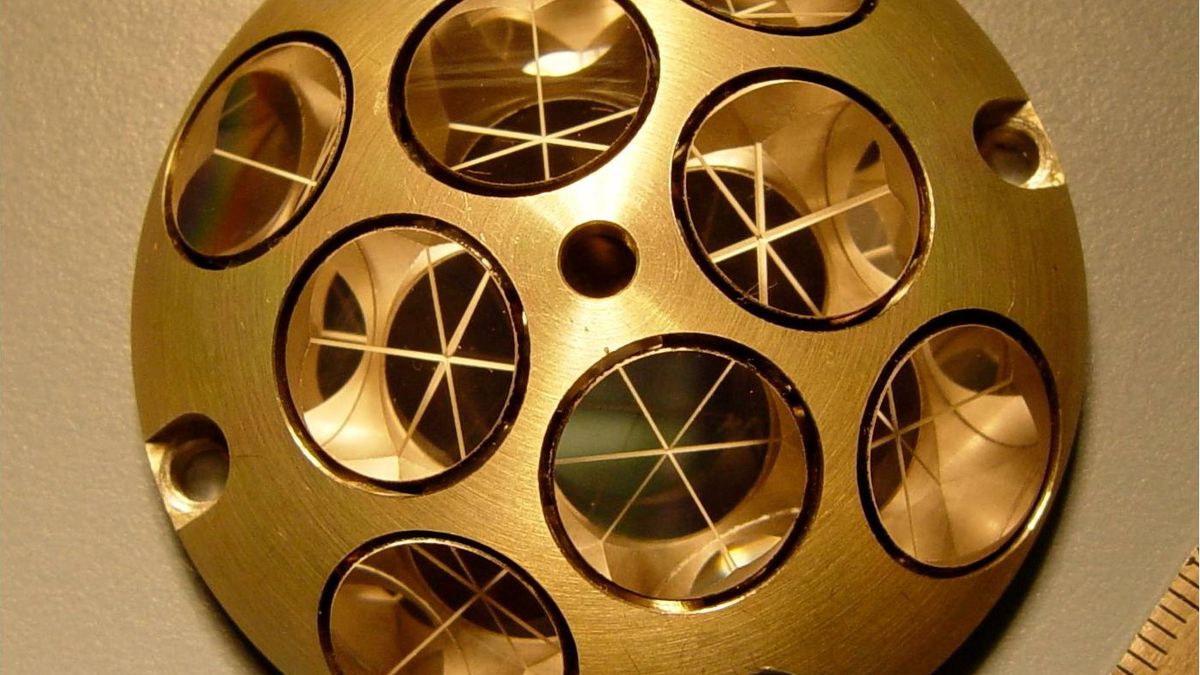Reflect on this!
NASA’s Lunar Reconnaissance Orbiter (LRO) recently bounced a laser off India’s Vikram moon lander, marking a space-communications first.
Vikram touched down near the lunar south pole on Aug. 23, 2023 on India’s pioneering Chandrayaan-3 mission, which also included a rover named Pragyan. Vikram carried on its body the tiny NASA Laser Retroreflector Array, or LRA for short.
Related: NASA’s Lunar Retroreflector Network could make landing on the moon much easier
Bounce back
The laser light show between LRO and Vikram took place on Dec. 12, 2023, with the orbiter transmitting laser pulses toward the lander and then registering the light that bounced back.
Vikram was some 62 miles (100 kilometers) from LRO at the time, silently sitting near Manzinus crater in the moon’s south pole region. (Vikram and Pragyan aced their surface missions, then went silent about two weeks after touchdown, as expected.)
“We’ve showed that we can locate our retroreflector on the surface from the moon’s orbit,” said Xiaoli Sun, who led the team at NASA’s Goddard Space Flight Center in Greenbelt, Maryland, that developed the retroreflector placed on Vikram as part of a partnership between NASA and the Indian Space Research Organisation (ISRO).
“The next step is to improve the technique so that it can become routine for missions that want to use these retroreflectors in the future,” Sun said in a NASA statement.
More to come
Several NASA retroreflectors are slated to fly aboard public and private moon landers — including one device carried by Astrobotic’s troubled Peregrine spacecraft, which is set to reenter Earth’s atmosphere on Jan. 18 due to a propulsion mishap.
Another Laser Retroreflector Array is onboard Japan’s SLIM lander, due to land on the moon on Jan. 19.
Also, an LRA is onboard Intuitive Machines’ Nova-C lunar lander, which is set to launch atop a SpaceX Falcon 9 rocket in mid-February. Intuitive Machines will carry six NASA payloads, including the retroreflector, under NASA’s Commercial Lunar Payload Services initiative.

Dr. Thomas Hughes is a UK-based scientist and science communicator who makes complex topics accessible to readers. His articles explore breakthroughs in various scientific disciplines, from space exploration to cutting-edge research.








